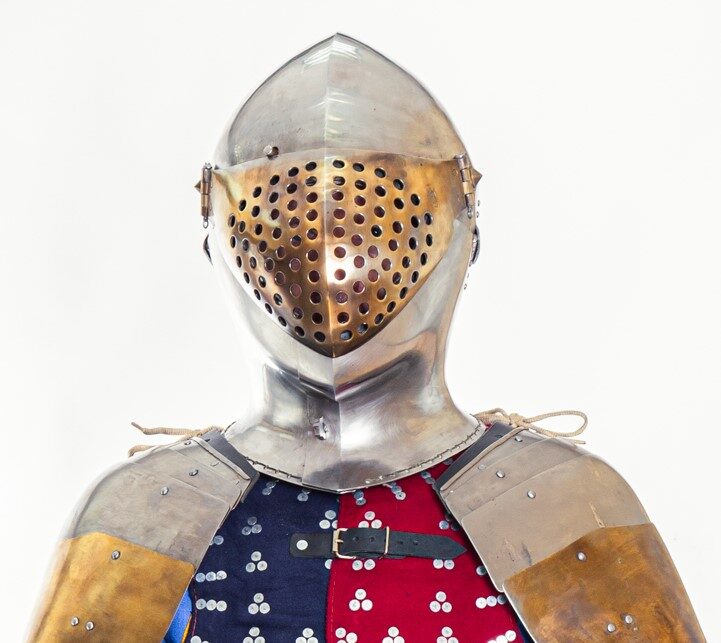Havana Syndrome is the name given to a collection of apparent physiological symptoms reportedly experienced by US and Canadian government staff while in Cuba. Although it has been attributed to a range of causes, most commonly some kind of attack by Cuban government agents, this video explains that the majority of medical evidence indicates Havana Syndrome is a mythical medical condition; a misdiagnosis of a medical condition which does not actually exist.
The earliest reports of the phenomenon emerged 2016, and began to increase rapidly as the issue gained attention. Subsequently, a number of scientific and medical studies have continued to cast doubt on the idea that the Havana Syndrome is a genuine physical phenomenon caused by external influence on US staff in Cuba. This supports Robert Bartholomew’s firm conclusion that Havana Syndrome “is a social panic that has been aided by sensational journalism, dubious science, social media conspiracy theories, and government bureaucracy”.
Aristi, Guillermo, Lyna Kamintsky, Margaux Ross, Chris Bowen, Cynthia Calkin, Alon Friedman, and Javeria A. Hashmi. “Symptoms Reported by Canadians Posted in Havana Are Linked with Reduced White Matter Fibre Density.” Brain Communications 4.2 (2022): fcac053. https://doi.org/10.1093/braincomms/fcac053.
Baloh, Robert W, and Robert E Bartholomew. Havana Syndrome Mass Psychogenic Illness and the Real Story Behind the Embassy Mystery and Hysteria. Cham: Springer International Publishing, Imprint: Copernicus, 2020. https://doi.org/10.1007/978-3-030-40746-9.
Bartholomew, Robert. “HAVANA SYNDROME HYSTERIA & THE GREAT WILD GOOSE CHASE: Classified Documents Reveal That Havana Syndrome Is Very Likely a Psychogenic Illness and Not a Sonic Attack by Foreign Actors.” Skeptic (Altadena, CA) 26.4 (2021): 48–54.
Bartholomew, Robert E. “60 Minutes Whips Up ‘Havana Syndrome’ Hysteria, Airs Sensational Segment on White House ‘Attacks.’” Skeptic, 4 March 2022. https://www.skeptic.com/reading_room/60-minutes-whips-up-havana-syndrome-hysteria-airs-sensational-segment-on-white-house-attacks/.
———. “Havana Syndrome Skepticism: A Report by the National Academy of Sciences Says Microwaves Caused an Array of Mysterious Health Complaints at the American Embassy in Cuba. Here’s Why We Should Be Skeptical. It Was Probably Psychogenic.” Skeptic (Altadena, CA) 26.1 (2021): 36–39.
Bartholomew, Robert E, and Robert W Baloh. “Challenging the Diagnosis of ‘Havana Syndrome’ as a Novel Clinical Entity.” J R Soc Med 113.1 (2020): 7–11. https://doi.org/10.1177/0141076819877553.
Bartholomew, Robert E, and Dionisio F Zaldívar Pérez. “Chasing Ghosts in Cuba: Is Mass Psychogenic Illness Masquerading as an Acoustical Attack?” Int J Soc Psychiatry 64.5 (2018): 413–16. https://doi.org/10.1177/0020764018766185.
Canham, Matthew, Stefan Sütterlin, Torvald F. Ask, Benjamin J. Knox, Lauren Glenister, and Ricardo Lugo. “Ambiguous Self-Induced Disinformation (ASID) Attacks: Weaponizing a Cognitive Deficiency.” OSF Preprints, 17 October 2021. https://doi.org/10.31219/osf.io/2kbf9.
Cusack, Paul TE. “Havana Syndrome Possible Cause.” Biomedical Journal of Scientific & Technical Research 36.3 (2021): 28508–10.
Friedman, Alon, Cynthia Calkin, Amanda Adams, Guillermo Aristi Suarez, Tim Bardouille, Noa Hacohen, A. Laine Green, R. Rishi Gupta, Javeria Hashmi, et al. “Havana Syndrome Among Canadian Diplomats: Brain Imaging Reveals Acquired Neurotoxicity.” medRxiv, 29 September 2019. https://doi.org/10.1101/19007096.
Harris, Shane, and Missy Ryan. “CIA Finds No ‘Worldwide Campaign’ by Any Foreign Power behind Mysterious ‘Havana Syndrome’ – The Washington Post.” Washington Post, 20 January 2022. https://12ft.io/proxy?q=https%3A%2F%2Fwww.washingtonpost.com%2Fnational-security%2Fcia-havana-syndrome-investigation-russia%2F2022%2F01%2F20%2F2f86d89e-795c-11ec-bf97-6eac6f77fba2_story.html.
Hurley, Dan. “The Mystery Behind Neurological Symptoms Among US Diplomats in Cuba: Lots of Questions, Few Answers.” Neurology Today 18.6 (2018): 1. https://doi.org/10.1097/01.NT.0000532085.86007.9b.
Kirk, John M. “The Strange Case of the Havana ‘Sonic Attacks.’” International Journal of Cuban Studies (2019). https://doi.org/10.13169/intejcubastud.11.1.0024.
Lin, James C. “The Havana Syndrome and Microwave Weapons [Health Matters].” IEEE Microwave Magazine 22.11 (2021): 13–14. https://doi.org/10.1109/MMM.2021.3102201.
———. “Weaponizing the Microwave Auditory Effect and the Havana Syndrome.” URSI Radio Science Bulletin 2021.376 (2021): 36–38. https://doi.org/10.23919/URSIRSB.2021.9682645.
Martínez, Jose A. “The ‘Moscow Signal’ Epidemiological Study, 40 Years On.” Reviews on Environmental Health 34.1 (2019): 13–24. https://doi.org/10.1515/reveh-2018-0061.
Mazumdar, Deepmala. “About The Aberrant Syndrome : Havana.” Vision Science Academy, 31 January 2022. https://visionscienceacademy.org/about-the-aberrant-syndrome-havana/.
Medicine, National Academies of Sciences, Engineering, and, Division on Engineering and Physical Sciences, Health and Medicine Division, and Standing Committee to Advise the Department of State on Unexplained Health Effects on U. S. Government Employees and Their Families at Overseas Embassies. An Assessment of Illness in U.S. Government Employees and Their Families at Overseas Embassies. National Academies Press, 2020.
Melekos Smith, Zhanna. “Anomalies or Attacks? Fear, Uncertainty and Politics of Havana Syndrome.” West Point Research Papers 554 (2021). https://digitalcommons.usmalibrary.org/usma_research_papers/554.
Murabayashi, Allen. “Do Photojournalism Contests Glamorize Pain and Suffering?” PhotoShelter Blog, 15 February 2018. https://blog.photoshelter.com/2018/02/photojournalism-contests-reward-pain-suffering/.
Muth, Christopher C., and Steven L. Lewis. “Neurological Symptoms Among US Diplomats in Cuba.” JAMA 319.11 (2018): 1098–1100. https://doi.org/10.1001/jama.2018.1780.
National Academies of Sciences, Engineering, Division on Engineering and Physical Sciences, Health and Medicine Division, Standing Committee to Advise the Department of State on Unexplained Health Effects on U. S. Government Employees and Their Families at Overseas Embassies, Julie A. Pavlin, and David A. Relman. Plausible Mechanisms. An Assessment of Illness in U.S. Government Employees and Their Families at Overseas Embassies. National Academies Press (US), 2020. https://www.ncbi.nlm.nih.gov/books/NBK566408/.
Nelson, Roxanne. “Havana Syndrome Might Be the Result of Energy Pulses.” The Lancet 396.10267 (2020): 1954. https://doi.org/10.1016/S0140-6736(20)32711-2.
Rubin, Rita. “More Questions Raised by Concussion-like Symptoms Found in US Diplomats Who Served in Havana.” JAMA 319.11 (2018): 1079–81. https://doi.org/10.1001/jama.2018.1751.
Shura, Robert D., Jason A. Kacmarski, and Holly M. Miskey. “Neurological Symptoms in US Government Personnel in Cuba.” JAMA 320.6 (2018): 603. https://doi.org/10.1001/jama.2018.8698.
Tolliver, Sandy. “Anomalies or Attacks? Fear, Uncertainty and Politics of Havana Syndrome.” TheHill, 28 October 2021. https://thehill.com/opinion/healthcare/578246-anomalies-or-attacks-fear-uncertainty-and-politics-of-havana-syndrome. Text.

